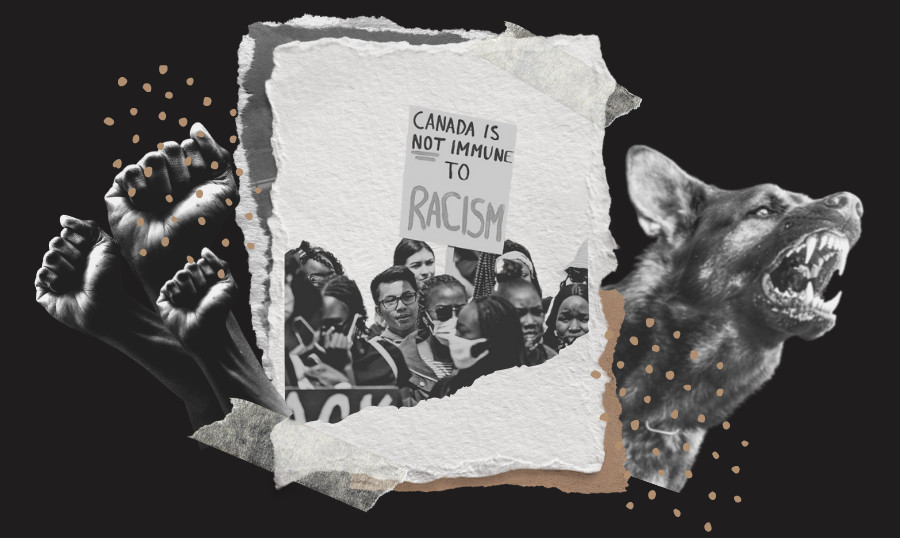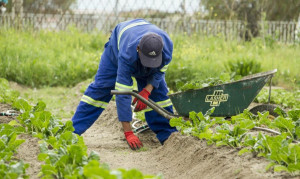Alolo hails from South America, migrated to Canada 57 years ago and has remained in Toronto since. She devoted her life to Canada as a teacher, educator, nurse, and welfare officer. She has been teaching Black history in her community for 20 years.
Over the years, Alolo has been involved in community work of all kinds, including advocacy and justice for all. She has been recognized for her efforts with medals and awards. These include the following:
⦁ ABC (Accomplished Black Women of Canada)
⦁ Honors award from the St. John Ambulance Brigade
⦁ The Fred Victor Women of Purpose Mary Sheffield award
⦁ And various awards from the Police Department
On August 6, 2021, Alolo decided to go to the bank and do some business. At around 2:35 PM, in the middle of the financial district, at Bay and Richmond Street, something happened that she would never have expected.
“I was going south on King when this woman was coming west. Her dog barked at me and acted very aggressively as if he was about to jump at me,” recounts Alolo.
Alolo doesn’t know the woman’s name yet. “She was a white woman. She looked about 32 years old. She was scrappy-looking and fairly dressed. She was small in stature, at about 4.5". She was talking loudly on her phone.”
Alolo politely asked the woman, “Ma'am can you pull up the dog's leash a little shorter?” But the woman said, “Why don't you go home? This is the dog's home. Canada is a place that has dogs. And if you don't like it, get out of here.” Then the woman dropped the leash and shouted, "Get the bitch, get the bitch."
“When she said those words, I tried to shield my legs with my cart. I never struck her back or anything. I kept running from her,” explained Alolo.
Then, the woman grabbed Alolo and battered her several times saying ‘Get out of my f***ing country, you hit my dog and you shouldn't be here.’ She continued kicking her. And that is when a security guard ran across the street and tried to grab the assaulter. Then, three other men came and stopped her. Alolo also remembers that the woman picked up the dog, put it in a duffel bag, and held it over her shoulder.
During the incident, Alolo’s glasses flew off, and she felt a headache. Alolo is grateful that she didn't fall during this incident. "I think the cart saved me because I grabbed on. I might have been killed because of how vicious she was," she says.
Then, the security guard ushered Alolo into the bank and two police officers came. One spoke with Alolo and gave her a file number and his card. He informed her that she will hear from the detective in 3 days. But she only heard back from the officer after 14 days.
It's worth mentioning that Alolo was in the bank for nearly two and a half hours. The officer called for paramedics, but they never showed up. She also asked the officer how she would get home and if he could get her a ride home. But he told her that they are bicycle officers and she could get a cab, which she did.
The next day, Alolo went to a walk-in clinic only to learn that they were closed. She went to a hospital and learned that she had muscle strains in her leg, her left knee, and the right side of her face.
Her emotional well-being is even more fragile because of the situation. She felt deeply hurt about this event and is now afraid to go out. She alerted her neighbours that they should be careful if the woman is out there.
“I will never forget this. I was scared. I can't sleep very well. I'm getting nightmares and jumping out of bed. I’ll always be looking over my shoulder when I go around the block. Besides, my husband is in long-term care and our only child lives overseas. I'm all alone,” explains Alolo. She is now receiving mental health support from a hospital.
Alolo wants justice for what happened. She wants the attacker to face legal ramifications or at least get the help that she needs. “It was very bad. It was a hate crime because she specifically said to me ‘go back home.’ Still, if she had told me to just go back home, I would have ignored her. But grabbing me and striking me several times is an assault that must not go unpunished,” Alolo asserts.
It's been over a month but nothing has been done in her case. Alolo did what she could to have this woman apprehended and charged. She called the Division 52 Dundas Street Police Station and learned that the file was cancelled. Then, she subpoenaed to have the police department release the file. After some time, she received a letter from the department that informed her about possible delays due to COVID-19.
Nothing has gone ahead yet, but on September 15, a police constable from the 52 Dundas Street Police Station called her to confirm that they are reopening the case but he is going away for a holiday and the case will be opened after a couple of weeks when he comes back.
One excuse from the Police Department for the delay is that they don’t have the footage. But Alolo doesn’t accept that. Because she knows that one of the police officers who came to help her at the incident had a body cam. Besides, they can also get footage from the bank.
Alolo believes that the criminal jurisdiction is bombarded by so many instances of hate crimes that they are forced to ignore some of these cases.
Data released by Statistics Canada in July 2021 indicates that the number of police-reported hate crimes in Canada increased by 37% in 2020, compared to 1,951 in 2019. This represents the highest number of police-reported hate crimes since Statistics Canada began tracking hate crime data in 2009. Police-reported hate crimes targeting race or ethnicity have nearly doubled (+ 80%) from the previous year, explaining the vast majority of the national increase in hate crimes. Ontario (+ 321 incidents targeting race or ethnicity), British Columbia (+ 196 incidents), and Alberta (+ 105 incidents) have registered the highest increases. “They're fed up with the Black Lives Matter group because they are in their face right now. They don't like to hear any talk about injustices. When they heard that I'm Black and my assaulter was a white woman, they took me less seriously," she says.Alolo didn’t stop there, though. She sought help from several places. She contacted the City Hall Court House, and they told her they can't do anything now for a civil case because of COVID-19. “Everyone is making the same excuse,” she says hopelessly.
She called Legal Aid, but they do not help in cases like hers. She also consulted Legal Help for Seniors. But the representative told her, "We don't think we can help you. The person who did that to you might be a person in a shelter, or mentally ill and if it's money you want, you wouldn't get that." At this point, Alolo was so perturbed that she hung up the phone. She emphasizes that she is not interested in money. But she wants to make it clear to everyone that being mentally disturbed doesn’t give one the right to walk around and hurt people.
Alolo also called the Mayor's office and left messages. But nobody got back to her. What surprised her was the lack of response from Black Legal Action Centre. “I called them and left a message, but they haven’t got back to me yet. I’m surprised. I didn’t expect that,” she says.
When Alolo first came to Canada, she lived in the multicultural neighbourhood of St. Clair West in Toronto. “We got along well and I had no problems in my early years at all,” she recalls. Alolo did experience minor racism when she worked in early childhood because many parents did not want to see a Black person with their children. “They said, 'oh I don't want my child to be in this class and that class' and so forth. But they were forced to do so because we fought injustice. And so only then I saw a little tension,” she says.
Alolo believes that nowadays, people are getting more vicious and intolerant. “They're not accepting people who are different from them. There is more racial discrimination and we see it being played out more openly today,” says Alolo.
Alolo wants to advise everyone to be aware that hate crime is on the rise. “They are trying to elevate hate crime. They're picking on older people because they can't fight back. You have to be vigilant whether you're Black, Asian, Indigenous, Jewish, wear a turban or headdress of any kind. It's very bad."
Alolo says the only thing she would say to racist people like her attacker is, "We're here and we're going nowhere. You must accept us."
Recent Data on the Rise of Hate Crimes in Canada
The COVID-19 pandemic is believed to have increased exacerbation of safety and discrimination issues in Canada, including hate crimes. Results of a crowdsourcing initiative conducted early in the pandemic confirmed that visible minorities were three times more likely to have experienced an increase in harassment or racial-based attacks than the rest of the population (18% versus 6%). The majority of the increase in police-reported hate crimes targeting race or ethnic origin is attributable to crimes targeting the Black population (+318 incidents or +92%). The East or Southeast Asian population (+202 incidents or +301%), the Indigenous population (+44 incidents or +152%), and the South Asian population (+38 incidents or +47%) were in second, third and fourth position.

 By
By 


